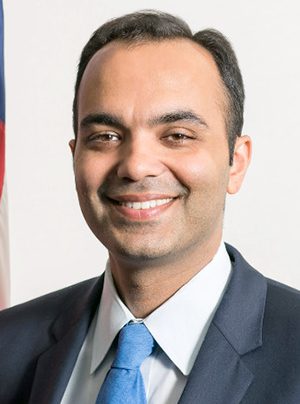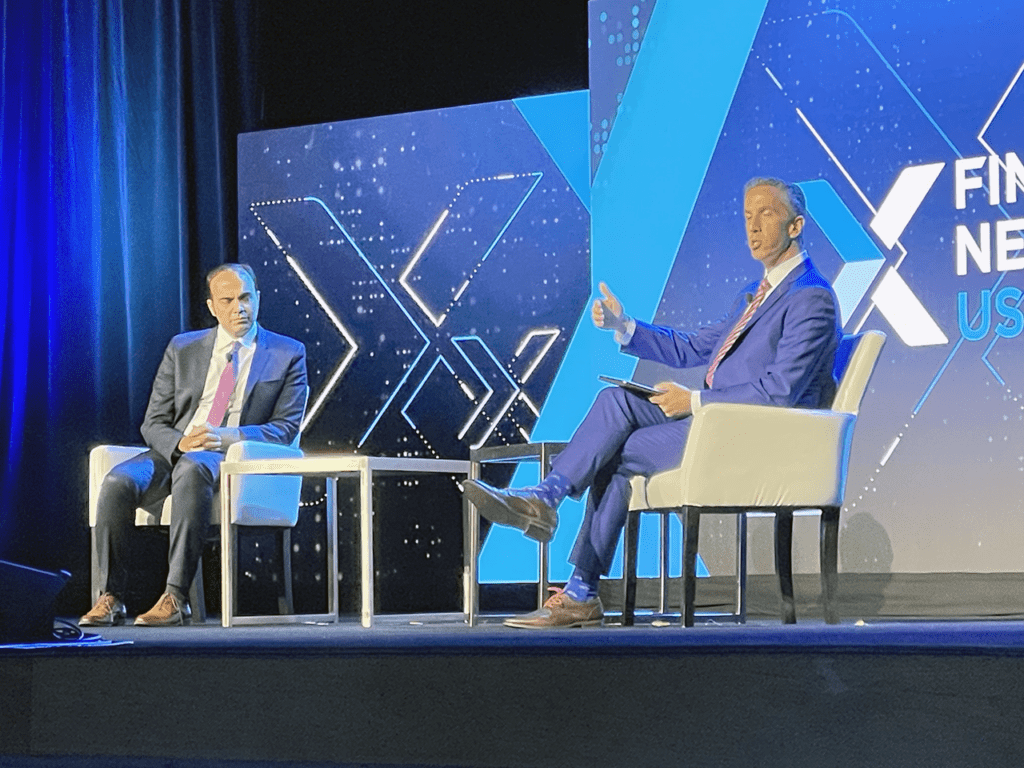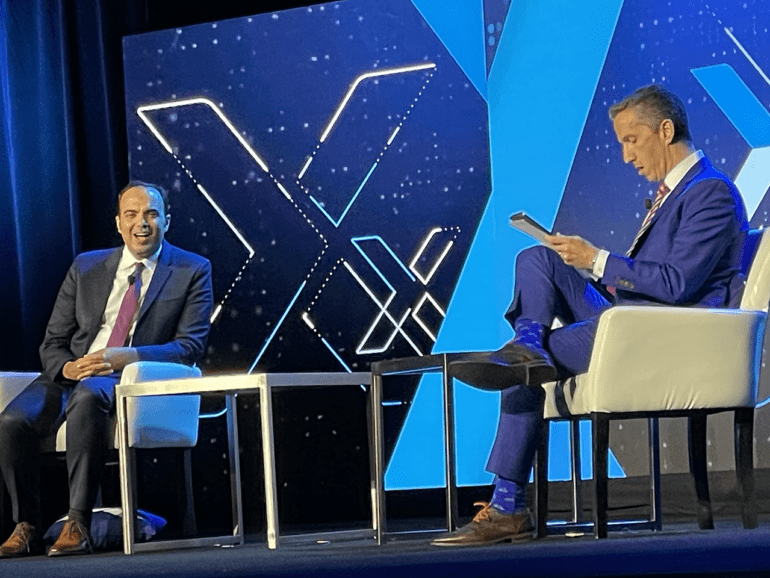NEW YORK, N.Y. — The wide-reaching scope of the CFPB’s mandate has made it a pivotal influence on the fintech industry. Striking a balance between regulation and free innovation, its decisions can cause a sector to grow or wither into insignificance.
On Day Two of Fintech Nexus USA 2023, CFPB Director, Rohit Chopra, took to the stage to discuss the next steps for the CFPB’s regulation of the fintech industry.

“We want to make sure that innovation is really about human progress,” said Chopra. “And I think that’s where many of you (fintechs) will ultimately face some tensions when it comes to an environment where people may be looking for exits. People may be looking for what’s next.”
“I think ultimately, if you have strong consumer protection, strong laws, they will allow yourself to steward your firm in a way that you maybe originally envisioned it, to the optimism and the idealism that you have.”
Working to open banking innovation
Published just over a month ago, the CFPB Small Business Review Panel’s final report on the Proposals and Alternatives Under Consideration for the Required Rulemaking on Personal Financial Data Rights marked the end of the beginning of a long-awaited regulatory reform that could spark an open banking revolution in the U.S. The Bureau will now embark on writing the rules.
“I think we will see our rules finished next year. But there’s a lot of work for this community and others to do in the meantime,” said Chopra. “You can’t expect the regulators to get all of the details on standards, standard setting, what types of technologies are going to be used – you’re going to see us try and create rules that are more timeless.”
He explained that the fintech industry had to engage to ensure the rules could be created in a way that would encourage diversity.
“I think many of you need to think about what are those industry standard-setting organizations. Who is going to be creating those rules?”
“Many of you may be familiar with the ACH system of moving payments. Many people complain that the rules around that set by industry are too tilted in favor of the largest banks. That’s what we want to avoid when it comes to open banking.”
He highlighted that the CFPB had already worked to skew regulation away from its historical focus on incumbents.
“I think when you design the rules, just for the biggest incumbents, you create problems,” he said.
“So we are generally taking a new approach to regulation. We’re looking more at how you promote a competitive decentralized market structure. How do you make sure that intermediaries and gatekeepers don’t get to eat a big part of the pie? And ultimately, how do you create rules that promote switching and shopping?”

Improving the quality of products to ensure stickiness
Chopra addressed concerns that an open banking regime would cause an increase in customers moving between financial institutions. While he agreed that stickiness would be reduced, this would be an improvement.
“I genuinely think consumer stickiness when it’s high; it should be a function, that pricing is good, or that service is good. Not because it’s so damn complicated to switch,” he said. “So I think what you see a lot in banking is it’s a bureaucratic nightmare to switch your products and move your money.”
He explained that increasing the ease of switching could cause companies to improve their products, ultimately leveling the playing field and benefitting consumers.
“I want to see a world where people can refinance their auto loans or mortgages and move their credit card debt more easily, that will decrease stickiness, that will increase prepayment risk. But that’s a world that I think ultimately is still better.”
He said this could affect the finance sector, leading to innovative solutions such as BNPL as a “competitive alternative” to credit.
Safe access to open data
Another area of apprehension surrounding the move towards open banking is the increased access to data.
Using the increased data, financial institutions could use alternative sources to inform activities such as underwriting and cater to specific underserved sectors. However, it came with risks.
“While a lot of people in this room are focused on how to provide better services, better products to consumers in their financial lives,” he said, “Some people might see open banking ecosystem as a ruse on which they can surveil people take very detailed transaction data, and frankly, use it for other purposes.”
He posed questions that the CFPB would attempt to answer, stating that they would be considering imposing limits on third-party access to data outside financial services.
“We’re going to have to figure out how we stop that,” he said. “And how do we make sure we know who they are to properly police them.”
“We have learned a lot from the European Union, the UK, and others, and we don’t want the early years of any open banking world to essentially be polluted by scammers.
RELATED: Fintech Nexus USA 2023


